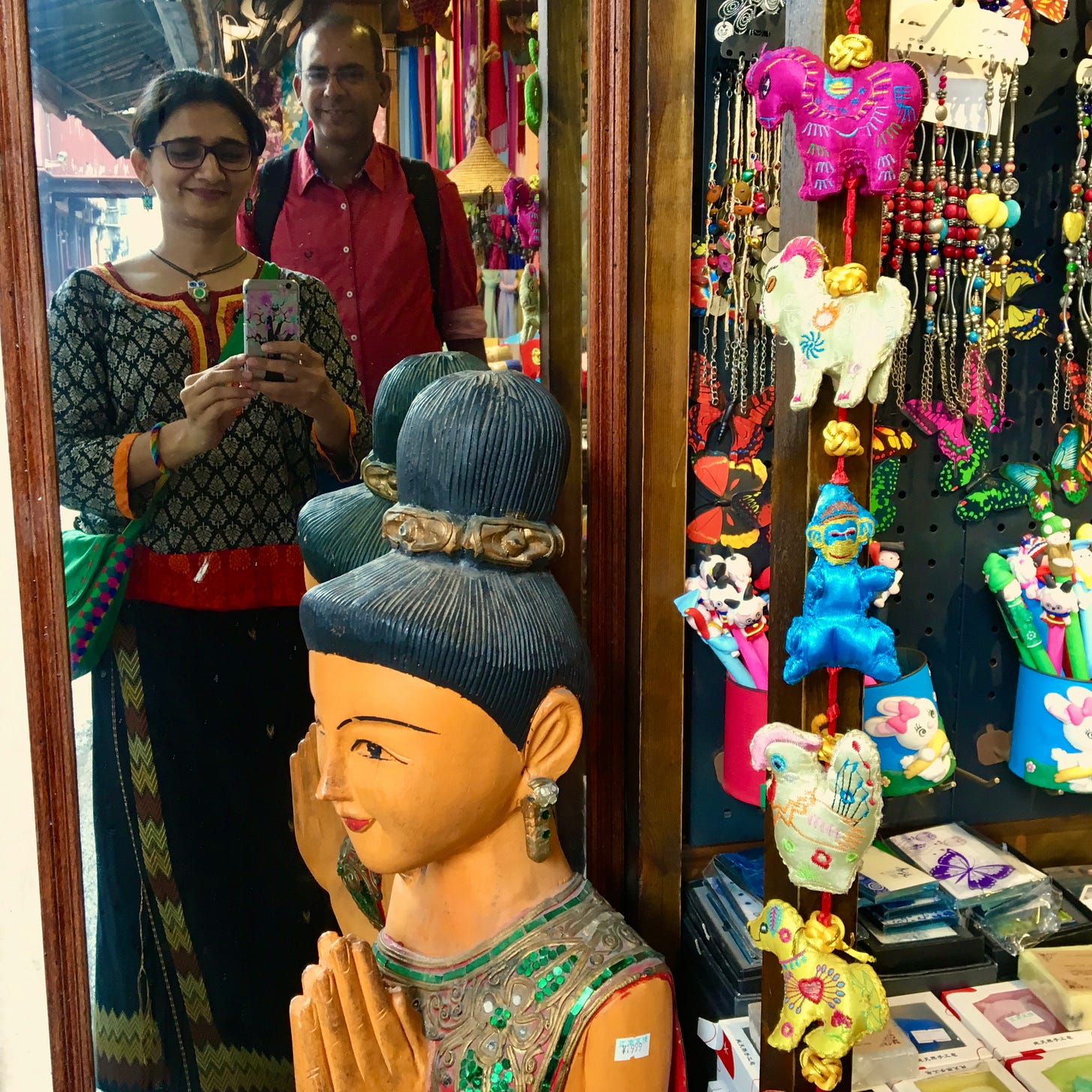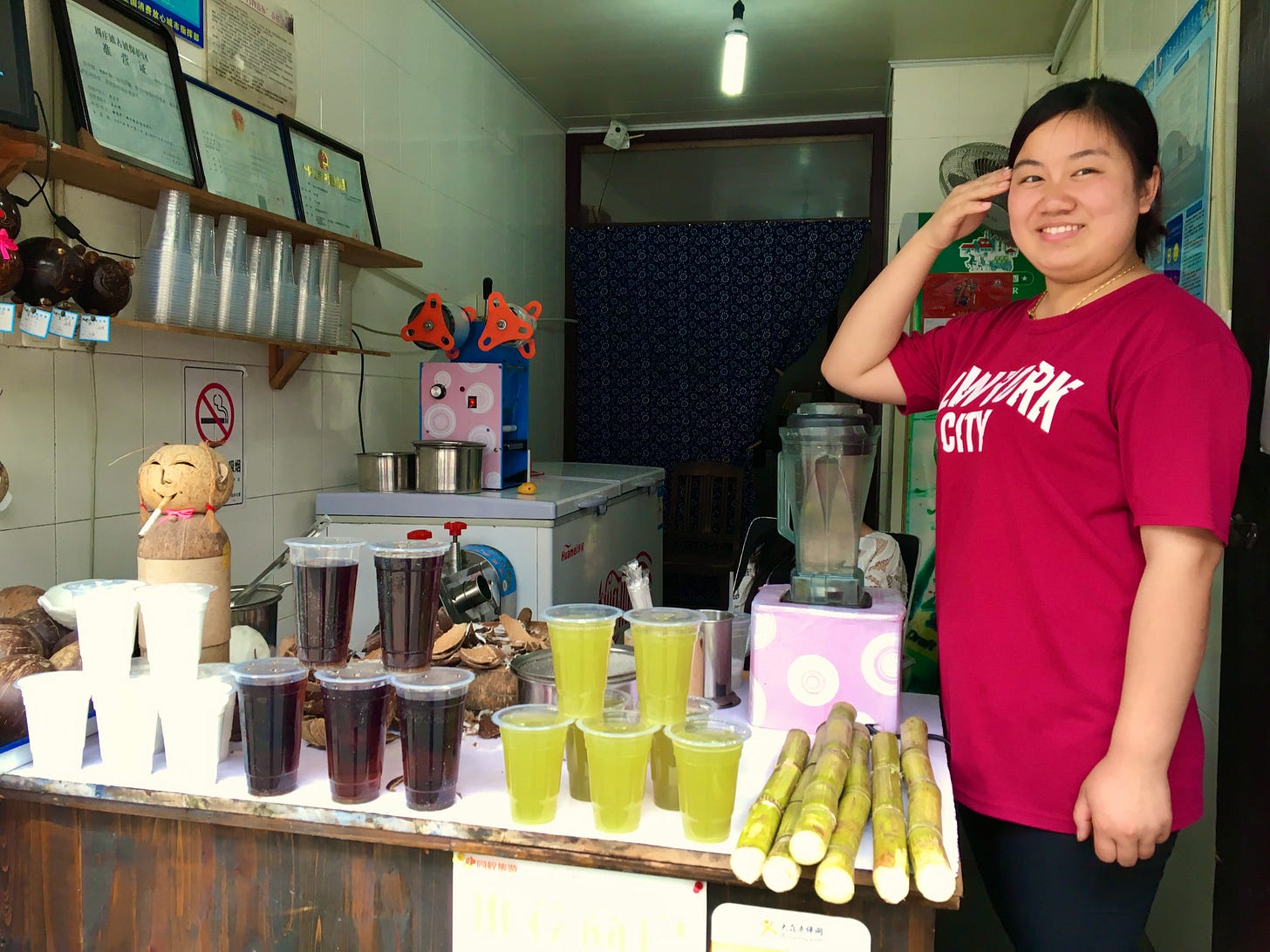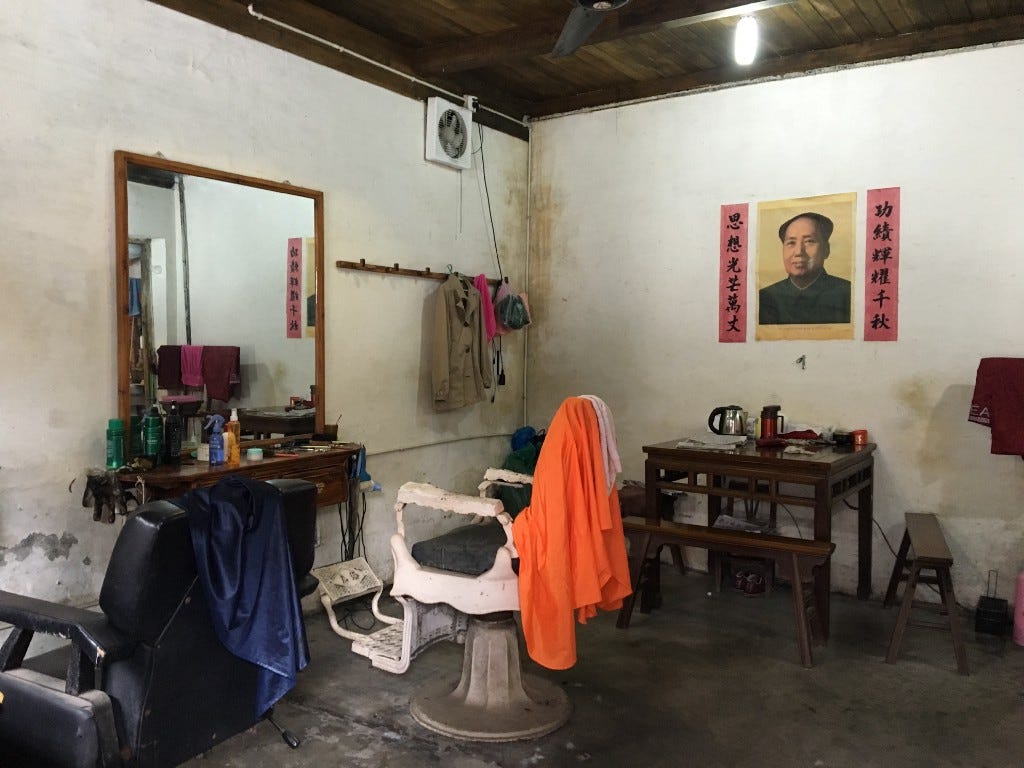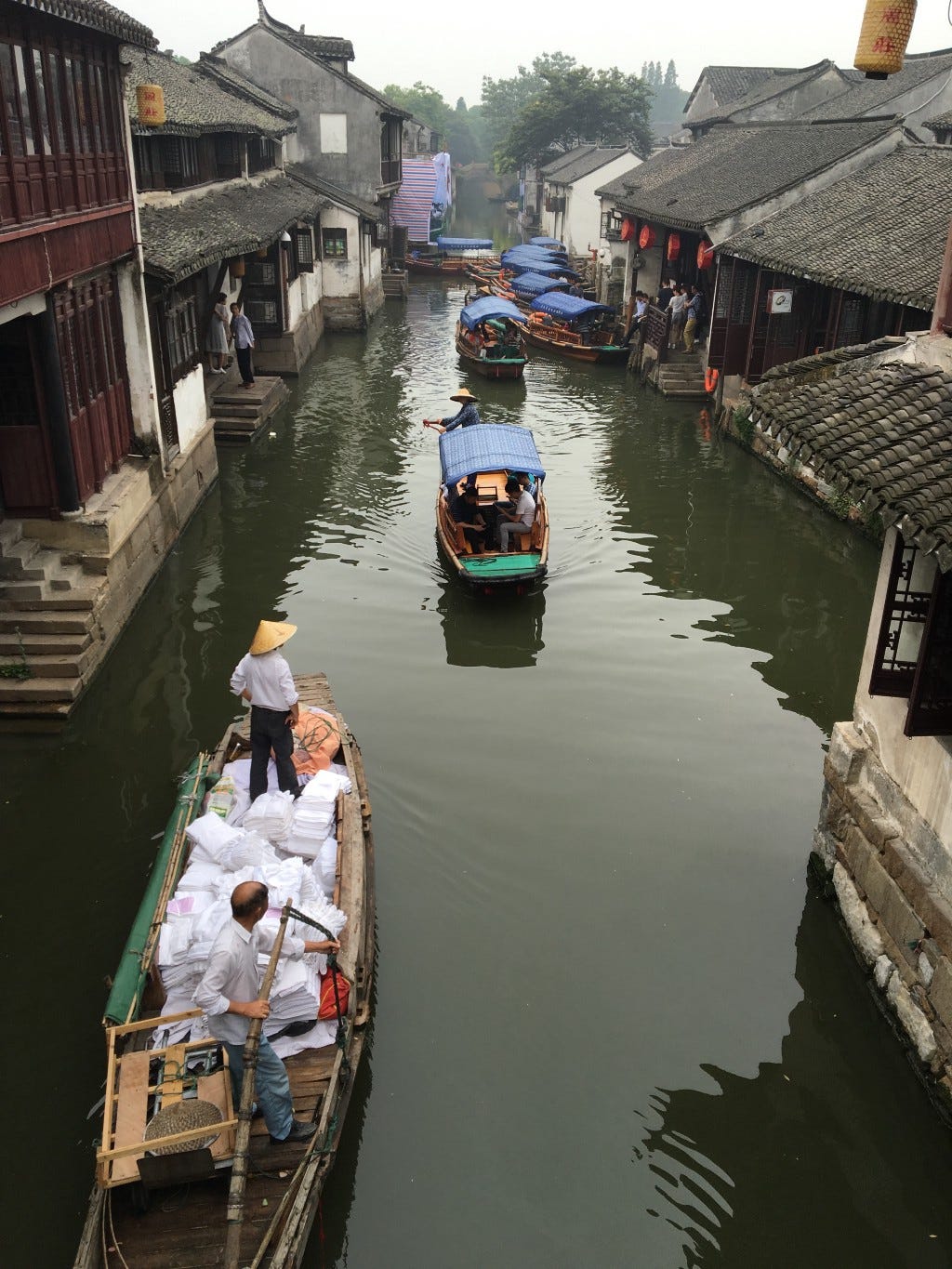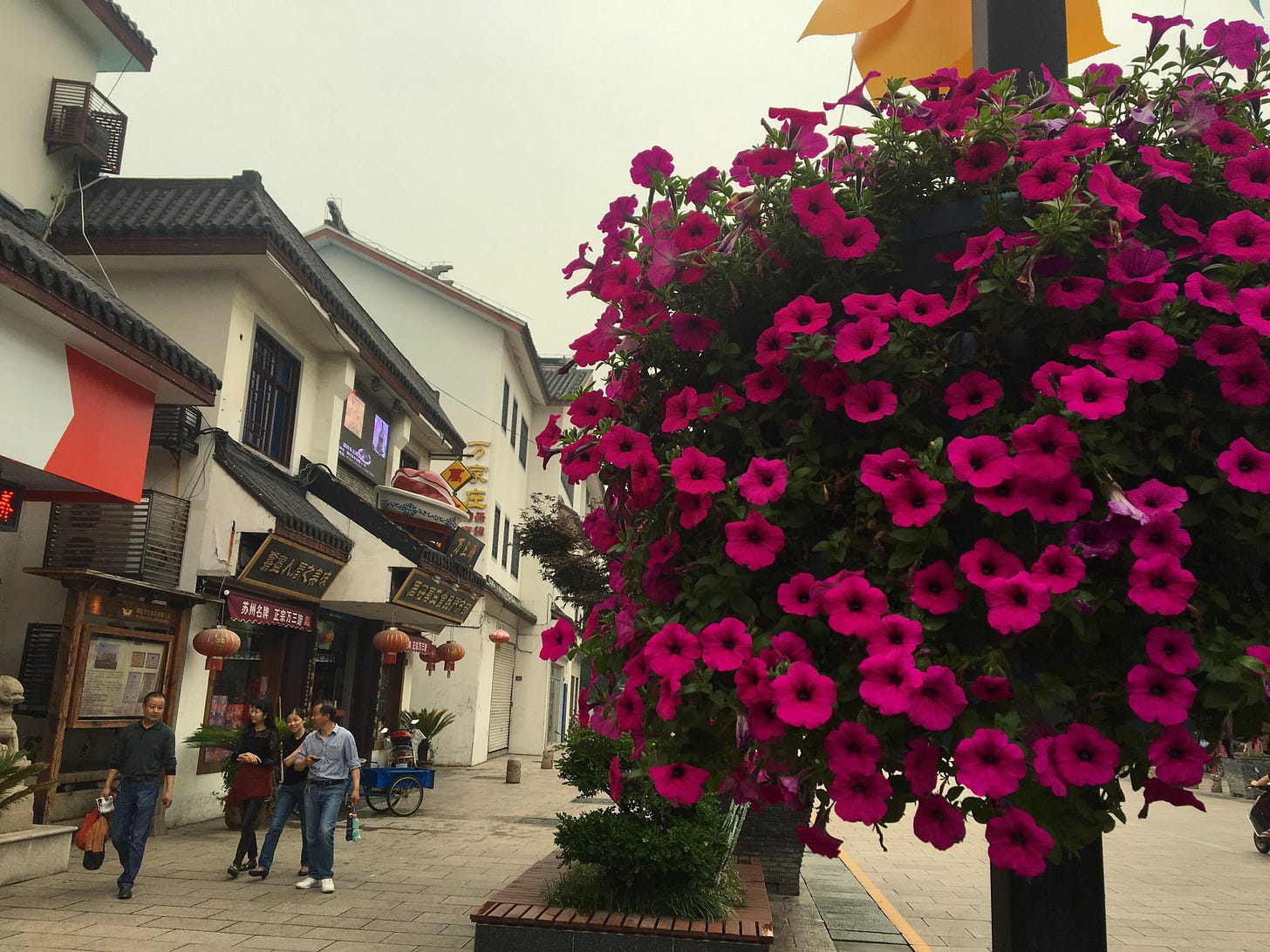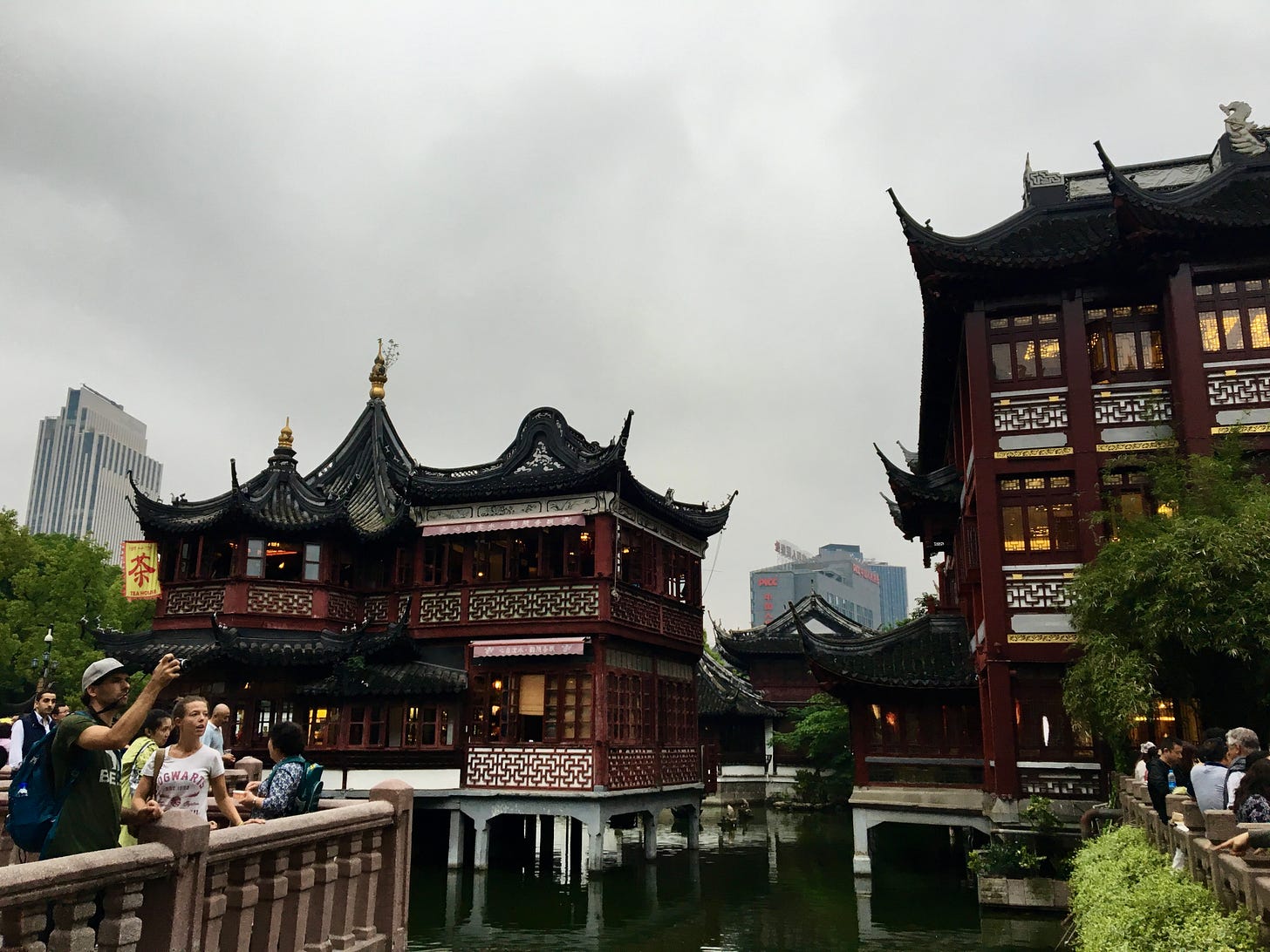Languages that flow in our veins
We got along fabulously in China — my Hindi and I. It is the language of my emotional terrain. I rely on it to express hospitality and show respect. The swear words in my head are all in Hindi.
Travelling in China for the first time, I spoke to everyone in Hindi.
After a stressful first day of speaking broken English and masking my accent to try to make myself understood, I realized that speaking calmly in Hindi led to better communication and kept me humane. In the shops, hotels and streets of Shanghai, where English was not the bridge I had expected, I chatted with everyone in Hindi. My brother was using translation apps on his smartphone which were quite efficient, but I would often beat him in getting the point across faster.
“Do mango shake de dijiye (two mango shakes please),” I said to the man at the fresh juice corner shop in Shanghai, pointing to the correct photo in his menu card. He made us delicious, fresh mango shakes. “Langda aam,” I said to him, making happy eyes at the drink and he agreed heartily.
“Yeh khiloney Lajpat Nagar mein bhi milte hain (These toys are available in Lajpat Nagar as well),” I shook my head and said to the man offering to sell plastic Minions with a helicopter fan attached to their head. In response, he offered to sell me the toys at Lajpat Nagar prices. I felt compelled to buy them for assorted nieces and nephews in India. He won.
“Bhaisahab, hum aapko bewakoof lagte hain kya, aap kaisi baat kartein hain (Brother, do we look like fools to you, what are you saying)?” I said to the conman offering to sell us sealed boxes of iPhone 6s at Shanghai airport when we were leaving. He laughed nervously, perhaps even fearfully. He could tell that I knew his con and was going to call him out any moment now. My words may have sounded like gibberish to a Chinese, but my tone made him quiver. He vanished.
This was a high point in my relationship with Hindustani, a language I want to own but have misplaced somewhere in the labyrinth of my growing-up years. We got along fabulously in China — my Hindi and I.
The first language I was born to is Punjabi. My parents and grandparents speak to each other in Punjabi. My second language is Hindi. Adults in our family spoke to my brothers and me in Hindi.
My third language is English, which I learnt in school. I discovered the world and myself in English. It is the only language I can write fluently in. English behaved like a colonizer. To use a familiar analogy, English gave me a railway network that took me far and deep into my own interior world, but it also usurped the Hindi and Punjabi spaces in my expression, leaving me with only one language that seemed to work properly.
My fourth language is Urdu. Ammi, my mother-in-law used to speak to me in Urdu. She blessed my children and me in Urdu, enveloping us protectively in her world. When Ammi and her son spoke to each other in Urdu, sometimes I only understood the prepositions. And yet, Urdu poetry illuminates emotions that are inaccessible to other languages. It touches unacknowledged grief and nameless pain. The voices of Nayyara Noor and Rekha Bhardwaj, of Ghulam Ali and Ali Noor, flow like river water breaching through the crevices of dams.
“Dil dhadakne ka sabab yaad aaya, woh teri yaad thi, ab yaad aaya… (I suddenly remembered the reason why my heart was beating like that, It was your memory, I suddenly remembered that).”
When we lose a language, it is like forgetting a route in a forest that used to be familiar to us. We want to explore parts we used to know, but we can’t seem to find the access. Distant memories and echoes of laughter beckon us. There is a dull ache for something intangible that we seek to recover.
Punjabi came back to me in the voice of Nusrat Fateh Ali Khan. Punjabi is my most broken language, yet it is also the one that yields the most laughs in my adult life. I was travelling in Kashmir, nursing a broken heart, when the voice of Nusrat Fateh Ali Khan singing a qawwali in Punjabi on my headphones stirred my attention. I had just received a new collection of cassettes from Karachi. As my taxi drove around mountain bends, Urdu and Punjabi words intertwined together in poetry that healed. The pieces of my disjointed, broken worlds came together in the rising crescendo of a Punjabi qawwali.
”I am Urdu, you are Punjabi,” he had said to me. Our worlds have nothing in common. Nusrat Fateh Ali Khan was telling me a different truth in my ears. “Keep quiet, you know nothing,” I said to him, when I returned to Delhi.
One of my closest friendships in adulthood pivots on our shared Punjabi childhoods. Rohit and I speak amateur Punjabi with each other, often recalling the imaginative taunts of angry aunts and alcoholic uncles and collapsing with laughter. The humour is part bitter and largely liberating.
Of all the languages I have lost, I missed Hindi the most. I married a man who speaks Hindustani. I wanted my children to have Hindi running through their veins. For the first few years of their life, I spoke to our children exclusively in Hindi. Then I needed to scold them, and true to its form, English proved to be the most useful language when I needed to raise my voice.
My friend Aneela, who grew up in Rawalpindi and lives in Delhi, travels all over the world speaking to her Australian-born son in Pushto. He replies to her in English.
“I speak to Arhaan in Pushto because I didn’t know any other way when I first became a mother. I never insist that he reply in Pushto. Thank God he is talking to me, has been my main response to whatever he says,” jokes Aneela.
I wonder if Arhaan will always have two language compartments in his soul. One for the warm Pushto his mother speaks to him in, and the other for the vocabulary of the rest of the world.
Aneela confides that she even speaks to cats and dogs in Pushto. I know my Bengali friends speak to their pets in Bangla. I cannot imagine talking to my adopted street dogs in Punjabi, a language more familiar to my ears than to my tongue.
My Hindustani has recovered enough to become the language of my emotional expression. I use its vocabulary to express hospitality and show respect. The swear words in my head are all in Hindi. I feel at home in Hindi. Authentic. Therefore, I travelled in China in Hindi. When there was no other language to connect us, it was best to use the one my emotions are most fluent in.
Speaking to Chinese people in Hindi, I felt completely free. I was a better person, smiling and being affable with everyone. I was more talkative than usual, commenting on wonderful food and telling people my personal woes. Nobody understood my words, but I swear I felt heard.
There are languages that we know how to speak. There are languages that know how to speak us. Languages that we understand, and those that understand us. Recovering lost words makes us whole, bringing alive parts that had lost their voice.
Now you tell me the story of languages that flow in your veins.
(This essay was first published on Livemint.com here as “Languages that run in our veins”)




